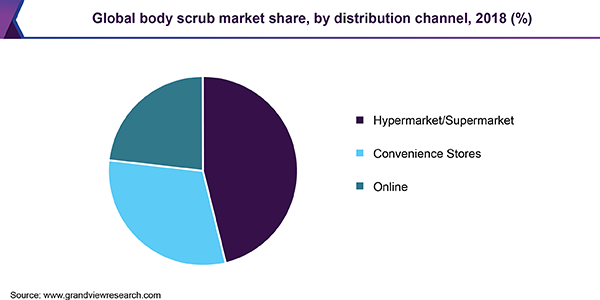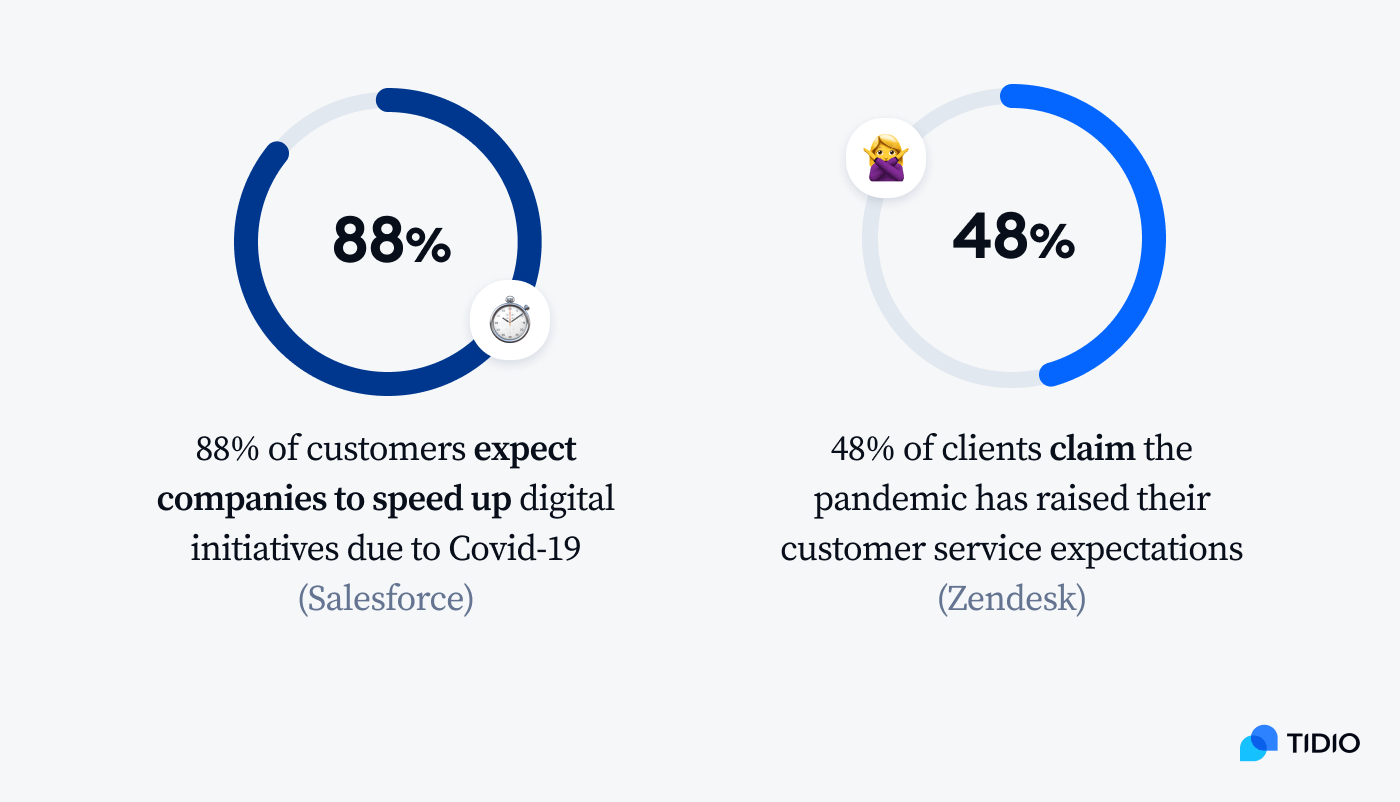The body scrub industry has exploded in recent years as consumers seek effective skin care regimens. According to Statista, sales of body scrubs and exfoliators in the US have grown rapidly since 2015, reaching $48 billion as of 2022.

With continued growth projected, now is an ideal time to break into this market. Body scrubs provide numerous benefits by sloughing off dead skin cells and improving circulation. Some body scrub businesses also offer lip scrub services as part of their packages, while other focus more on perfecting their body scrub methods by using highly efficient skincare line products.
This guide offers insight into how to start a body scrub business of your own. Topics include market research, competitive analysis, registering an EIN, obtaining business insurance, forming an LLC, and more. Here’s everything you need to know to get started in the body scrub industry.
1. Conduct Body Scrub Market Research
Market research is integral in starting a new business. It offers insight into your target market, local market saturation, trends in products and services, and more. Market research helps you build a solid business plan, and develop strategies for body scrub marketing and customer appreciation.

Some things you might learn through market research as you start a sugar scrub business includes:
- There is increasing demand for personal care products, rising disposable incomes, and growing consumer inclination towards self-care are key market drivers.
- Additional demand comes from spas and salons offering body scrub services.
- The body scrub market is highly fragmented with numerous players offering various product types. Body scrubs are available in gel, liquid, powder, soap, and other forms.
- Popular ingredients include sea salt, sugar, coffee, oatmeal, and fruit extracts.
- Major players include Tree Hut, but there is ample room for smaller brands to find a niche.
- The market can be segmented demographically to target specific consumer groups.
- Gender-specific branding also allows for differentiation. Sustainability and ethical production are becoming increasingly important brand attributes.
- There are multiple distribution channels to tap. E-commerce represents the largest and fastest-growing segment.
- Amazon and direct-to-consumer websites offer strong platforms.
- Placement in natural grocery and beauty stores provides exposure.
- Salons/spas also represent a distribution and marketing opportunity.
To open your own body scrub business, there is still has ample room for growth and innovation in the industry. Entrepreneurs who can create quality products, focus on a specific demographic or distribution channel, highlight unique ingredients and branding, and leverage digital marketing have a strong chance of seizing a portion of this growing market.
2. Analyze the Competition
Thorough competitive analysis is crucial when launching a body scrub business. This involves evaluating both in-person and online competitors. Some ways to get to know your competition as you take steps to start your own sugar scrub business include:
- For brick-and-mortar competition, locate local spas, salons, and beauty retailers selling body scrubs.
- Visit stores, sample products, speak with employees, and assess pricing.
- Take notes on product varieties, ingredients, packaging, merchandising, and branding.
- Identify potential advantages your business could offer.
- Analyze the online presence of physical competitors and e-commerce sites.
- Check their website traffic using SimilarWeb.
- Review product range, pricing, images, product descriptions, and website design.
- Sign up for email lists to evaluate marketing campaigns.
- Monitor social media for engagement levels, promotions, and new products.
- Search for body scrub products on Amazon and read reviews to identify customer feedback, both positive and negative.
- Use Jungle Scout or other Amazon analytics tools to assess demand and opportunity.
- Google body scrub keywords such as “coffee body scrub” to see which brands rank highest in search results. The brands on page one will be your top online competitors.
- Use SEMrush to analyze their organic and paid search strategies.
- Evaluate competitor strengths like branding, ingredients, or packaging that could be emulated.
- Tracking market and competitor data over time reveals trends to capitalize on and pitfalls to avoid.
- Partnering with a web analytics platform like Google Analytics allows for ongoing competitive monitoring once your online store is established.
By thoroughly analyzing the competitive landscape, body scrub entrepreneurs gain valuable insights into positioning their brands for success. They can hone their unique value proposition while leveraging competitors’ strengths and avoiding their weaknesses.
3. Costs to Start a Body Scrub Business
There are start up and ongoing costs as you start a body scrub business. This is one reason having your own business bank account is so beneficial. Some of the expenses you’ll encounter as you create a brand and business plan, include:
Start-up Costs
When starting a body scrub business, there are a variety of one-time start-up costs to consider. Initial expenses will depend on factors like business model and location but may include:
- Legal/administrative fees – $500-2,000 to form an LLC or corporation and obtain required licenses and permits.
- Product development – $2,000-5,000 for ingredient sourcing, testing formulations, designing packaging, and initial small batch production.
- Inventory – Expect to invest around $5,000-10,000 on raw ingredients, jars/bottles, labels, and packaging for the first product run.
- Website design – $3,000-5,000 to have a professional e-commerce site designed if selling online directly to consumers.
- Brick-and-mortar retail buildout – $10,000-50,000+ for lease, renovations, displays, and signage if opening a physical store.
- Equipment – $1,500-5,000 for mixers, scales, sterilization equipment, and other production tools.
- Marketing – $2,000-5,000 for brand logo, business cards, and photography for website, and social media.
- Insurance – $1,000-2,000 annually for general liability coverage.
- Initial staffing – Expect to pay a shop manager or assistant $40,000-60,000 in annual salary.
Ongoing Costs
- Rent – Retail space or commercial kitchen rental may range from $1,500-$5,000 depending on location and size.
- Utilities – Electric, gas, water, waste removal, etc. averages $500-$2,000 monthly.
- Insurance – Between $100-$300 per month.
- Staff payroll – Depending on team size, $3,500-$12,000+ in monthly payroll expenses.
- Supplies – Approximately $1,000-$3,000 to replenish ingredients, packaging, and labels each month.
- Software subscriptions – $100-$500 for POS system, accounting, inventory management, email marketing, etc.
- Loan payments – If the business is debt-financed, monthly payments could be $1,000+.
Ongoing annual expenses
- Accounting – $1,000-$5,000 to outsource to a bookkeeping firm.
- Marketing – Budget approximately $5,000-$20,000 annually for SEO, PPC, social media advertising, content creation, and PR.
- Insurance – General liability, workers comp, etc. averages $5,000-$20,000 per year.
Carefully estimating both start-up and ongoing costs ensures entrepreneurs are fully capitalized and financially prepared to operate a successful body scrub business. Proper budgeting also allows for flexibility as the business scales.
4. Form a Legal Business Entity
When starting a body scrub company, choosing the right business structure is key. The four main options each have pros and cons to weigh. Make sure you thoroughly research each before you register your business as a legal entity.
Sole Proprietorship
A sole proprietorship is the simplest and most common for small businesses. There is little paperwork required to form one and no separate business entity is created. However, the business owner is personally liable for all debts and liabilities. This poses a substantial risk for a body scrub company due to potential product liability claims.
Partnership
Forming a general partnership allows multiple owners to share management and liability. But each partner is also personally responsible for the actions of the other partners and the partnership as a whole. Disagreements can also arise with shared decision-making.
Limited Liability Company (LLC)
A limited liability company (LLC) provides personal asset protection like a corporation but with the pass-through tax benefits of a partnership. Profits and losses pass through to the owners’ tax returns. Starting an LLC only requires filing articles of organization and an operating agreement.
Corporation
A C corporation is a more complex entity that requires filing articles of incorporation. The business is considered separate from the owners with corporate taxes filed. Owners (shareholders) are protected from personal liability. However, C corps face double taxation on profits. For a small body scrub startup, an LLC is typically a better choice.
5. Register Your Business For Taxes
An Employer Identification Number (EIN) is a unique 9-digit number that identifies your business for tax purposes. The IRS requires all businesses, including sole proprietors, to obtain an EIN.
This serves as your business’s Social Security number and is required regardless of whether you plan to have employees. An EIN is necessary for opening business bank accounts, applying for licenses, filing taxes, and hiring employees later on.
The good news is applying for an EIN is free and fast through the IRS website. Here is the simple process:
- Gather your personal information including name, address, birth date, and Social Security number.
- Navigate to the EIN Assistant and select “View Additional Types, Including Tax-Exempt and Governmental Organizations”
- Choose “Sole Proprietorship” as the type of entity.
- Specify that you are applying for a new EIN.
- Enter your business name and address.
- When asked the reason for applying, choose “Started a new business.”
- Submit your information and the IRS will instantly provide your EIN.
In addition to obtaining a federal EIN, contact your state revenue or taxation department to register for sales tax collection. This allows you to legally charge sales tax on body scrub products sold in your state.
Taking these crucial administrative steps early on ensures full legal compliance and provides the documentation needed as your body scrub business grows.
6. Setup Your Accounting
Proper accounting is crucial for any business, including a body scrub company. Trying to manage finances manually in spreadsheets is inefficient and error-prone.
Accounting Software
Accounting platforms like QuickBooks seamlessly integrate with your business bank accounts and credit cards. Transactions are automatically categorized and posted to the correct ledgers. This automation provides real-time visibility into cash flow, payables, receivables, profit and loss statements, and other financial reports. Manual data entry is reduced, minimizing errors.
Hire an Accountant
While software provides automation, partnering with an accountant is still advised. An accountant provides financial oversight and advisory services that software alone cannot. Common services include:
- Bookkeeping – Recording transactions, reconciling accounts
- Cash flow analysis – Monitoring income and expenses
- Tax preparation – Filing quarterly/annual returns
- Audit support – Assisting with documentation if audited
Expect to invest around $200-$500 per month for basic bookkeeping and $1,000-$3,000 to have taxes prepared. This financial guidance can prove invaluable, especially for an audited body scrub business required to demonstrate sales/earnings.
Open a Business Bank Account
Maintaining proper accounting also requires separating personal and business finances. Your body scrub company should have dedicated business checking, savings, and credit card accounts used solely for commercial purposes.
Apply for a Business Bank Account
Comingling personal and business expenses makes record keeping confusing. A separate business credit card also helps build your company’s credit profile, which determines credit limits and interest rates. To apply for a business card, be prepared to provide your EIN, company financial statements, and personal information.
7. Obtain Licenses and Permits
Before opening your doors, a body scrub business must obtain all required licenses and permits. Find federal license information through the U.S. Small Business Administration. The SBA also offers a local search tool for state and city requirements.
If producing body scrubs onsite and selling them directly to consumers, start by contacting your local municipality to apply for a general business license. This demonstrates you have approval to commercially operate within city limits. General business licenses typically cost $50-$100 annually.
You may also need approval for zoning usage if opening a physical body scrub shop. Verify that retail businesses are permitted within the zoning designation for your desired location. Expect to pay $150-$500 for zoning approvals.
Since body scrubs are considered cosmetics, your state government likely requires a specialized cosmetology license. This validates your scrubs meet safety and sanitation standards. Acquire the license before manufacturing or selling any products. State cosmetology licenses average $100-$500 depending on location.
If selling body scrubs online across multiple states, look into obtaining a multi-state seller’s permit. This allows you to legally ship products to customers anywhere in the U.S. The unified permit streamlines compliance rather than requiring individual state licenses.
Any employees of your body scrub business must also hold certain credentials. Consult your state board to determine if managers require cosmetology or esthetician licenses. These verify their expertise in safe spa services and skin care handling. Employees without such credentials may be restricted in job duties.
8. Get Business Insurance
Obtaining adequate business insurance is strongly advised to protect a body scrub company from unexpected liabilities. Without coverage, a single catastrophe could destroy everything you’ve built.
Business insurance shields your company’s finances in events like:
- Product liability – If a customer has an allergic reaction or injury from using your body scrub, you could be sued for substantial damages without insurance to cover legal fees and settlements.
- Property damage – If a fire, flood, or other hazard damages your commercial space and equipment, repairs and replacements could cost tens of thousands without insurance reimbursement.
- Employee injury – Should an employee get hurt on the job, medical bills, and lost wages are your responsibility if uninsured.
Failing to secure insurance means personally footing the bill in scenarios like these. The financial burden could bankrupt your business.
Common policies to consider include:
- General liability – Covers third-party bodily injury and property damage claims
- Product liability – Protects against loss from product-related injuries or damage
- Property insurance – Safeguards physical business locations and inventory
Work with a commercial insurance broker to review your risks and build a customized policy meeting all coverage needs. Expect monthly premiums between $100-$500 for a comprehensive plan. This investment provides peace of mind and financial security as you grow your body scrub enterprise.
9. Create an Office Space
Securing office space can provide numerous benefits as a body scrub business grows. An office gives you a centralized hub for holding meetings, storing inventory and equipment, handling shipping/receiving, and conducting other administrative tasks.
Home Office
Operating initially from a home office allows for minimal overhead. This works well for fledgling businesses. However, working from home can also prove challenging if space is limited or distractions arise. Expect costs of $100-$300 per month for utilities, furniture, and supplies.
Coworking Office
For a more professional atmosphere, a coworking space like WeWork offers amenities like meeting rooms, shared equipment, and networking events. The collaborative community also provides learning opportunities. Coworking averages $200-$500 monthly per desk.
Retail Office
If your body scrub company opens a brick-and-mortar retail location, an attached office may come with the physical store. This allows for on-site product storage and a space for employees. A retail office has easy access to the sales floor. Rent is bundled with the overall lease.
Commercial Office
Leasing traditional office space in a commercial building lends further credibility when meeting with clients. Expect monthly costs between $1,000-$5,000 depending on location and size. Office buildings also typically offer reception services, parking, break rooms, and security.
10. Source Your Equipment
Launching a body scrub business requires ingredients for manufacturing along with equipment for production and packaging. For new entrepreneurs, acquiring these materials affordably is key.
Buy New
When buying new, websites like Bulk Apothecary offer discounted raw ingredients like salts, oils, and essential oils in bulk. Lab equipment suppliers also provide kettles, mixers, and sterilization tools. Buying new ensures full warranty protections.
Buy Used
Purchasing used equipment through auction sites like eBay and GovDeals can significantly reduce costs. Look for lightly used mixers, utensil sets, and scales to outfit your production kitchen.
For smaller items, Facebook Marketplace and Craigslist also offer local deals on used beakers, funnels, mini-fridges for ingredients, and the like. Examine equipment thoroughly before purchase to check functionality.
Rent
Renting equipment through companies allows the use of items like labeling machines, shrink-wrap sealers, and industrial-sized mixers without a large upfront investment. This can benefit new businesses before high production volume is reached.
Lease
Leasing agreements through equipment financing companies provide access to modern cosmetics equipment. While more expensive long term than purchasing, this avoids major capital outlays at the start.
11. Establish Your Brand Assets
Developing a strong brand identity is crucial for any business seeking to stand out in a crowded market. For a body scrub company, thoughtful branding evokes the sensory experience of your products and builds recognition.
Get a Business Phone Number
Acquiring branded business tools lends an air of professionalism and authority when interfacing with customers. A dedicated business phone line like one from RingCentral shows you are an established company rather than an individual.
Design a Logo
A logo and visual brand from a service like Looka gives your business an identifiable face and personality. A modern, spa-like logo immediately tells customers your specialty. This logo can be incorporated across branded collateral for continuity.
Print Business Cards
Professionally printed business cards from Vistaprint enable handing out contact information at trade shows, networking events, or sales meetings. Custom signage accents your storefront or booth. Business cards facilitate vital first impressions.
Buy a Domain Name
Purchasing a domain name for your website through a registrar like Namecheap anchors your online presence. Ideally, the domain matches your business name for easy searching. Once owned, the domain boosts credibility.
Design a Website
Building a website via a user-friendly platform like Wix or hiring a freelancer from Fiverr allows you to showcase products, drive sales, and communicate your brand story 24/7. An e-commerce site opens new revenue streams.
12. Join Associations and Groups
Joining relevant local organizations and online communities provides invaluable connections when starting a body scrub company. Surrounding yourself with others in the spa and cosmetics industry leads to networking, mentoring, and growth opportunities.
Local Associations
Search for associations like the American Spa Association or Associated Skin Care Professionals that host local networking events, trade shows, and mixers. Introduce yourself to fellow skincare business owners who can share advice and become partners.
Local Meetups
Attending industry meetups helps build your knowledge through seminars and classes while also meeting potential customers. Use Meetup to find local skincare, beauty, and wellness events to mingle with enthusiasts who may enjoy your scrubs.
Facebook Groups
Participating in Facebook Groups like Bath Bomb, Body Butters, Sugar Scrubs & Lotions (DIY skincare) and Bath Bombs, Body Butters, and Sugar Scrub connects you to an international community of thousands. Post questions, share ideas, and gain visibility.
13. How to Market a Body Scrub Business
Implementing an effective marketing strategy is essential for any new body scrub business seeking rapid growth and scale. While quality products may sell themselves at first, marketing expands awareness and drives sales.

Personal Networking
Leveraging your personal and professional networks generates quick wins. Satisfied customers who rave about their glowing skin after using your scrubs make ideal brand advocates. Offering discounts or free products in exchange for customer reviews, testimonials, and referrals creates a viral, word-of-mouth ripple effect.
Digital Marketing
Digital marketing provides affordable, measurable tactics:
- Search engine optimization to improve website visibility for relevant scrub searches
- Pay-per-click ads through Google Ads to get your products in front of motivated buyers
- Social media promotions highlighting new scents or product launches
- Email nurturing sequences that build relationships and loyalty
- Retargeting ads reaching previous site visitors
- Affiliate partnerships with bloggers and influencers in the beauty space
Traditional Marketing
Traditional approaches also still warrant consideration:
- Print advertisements in beauty and spa trade magazines
- Billboards or radio spots targeting commuters in your locale
- Sponsoring local 5K races or wellness events related to your audience
- Direct mail postcards sent to neighborhoods near your store
- In-house flyers given to salon customers
While digital tactics provide trackable data, traditional options help raise mass local awareness and may better reach certain demographics.
14. Focus on the Customer
Providing exceptional customer service is crucial for any body scrub business to thrive. Positive customer experiences lead to repeat business, word-of-mouth referrals, and reviews that drive new sales. On the other hand, poor service risks losing customers forever.

Start by training staff to attentively listen, answer questions, and make recommendations tailored to each customer’s skin type and scent preferences. Small touches like handwritten thank you notes or free samples with online orders make patrons feel valued. You could also tell customers that they should wait at least 24 hours after getting a body scrub to visit a tanning salon because the oils used in the body scrub session can decrease tanning effectiveness.
Respond to inquiries and complaints promptly – ideally within 24 hours. If a customer reports an issue like an allergic reaction or defective product, offer a refund or replacement immediately along with sincere apologies. Turn negatives into positives by going above and beyond to resolve problems.
Follow up with customers after purchases to collect feedback through surveys or reviews. This shows you care and helps improve offerings. Loyalty programs with perks like discounts or free body butter on every 5th purchase incentivize repeat business.
Providing an exceptional spa-like experience surrounding your body scrubs creates devoted brand advocates. When you wow customers with service that exceeds expectations, they will eagerly share your business with friends and on social media. Prioritizing customer happiness above all else is the key to growth.
